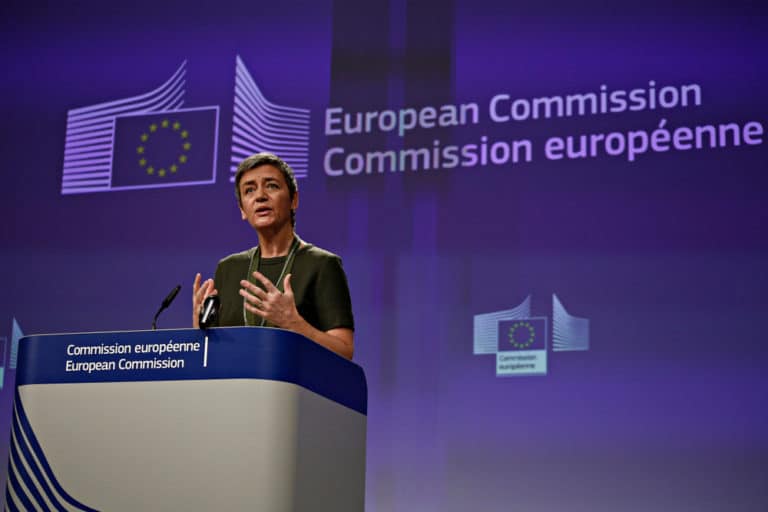By the end of March, the European Commission hopes to agree with EU legislators and governments on new regulations to limit the powers of Alphabet’s Google, Amazon, Apple, Facebook, and Microsoft, according to Europe’s antitrust head.
Margrethe Vestager, who introduced the Digital Markets Act with a list of dos and don’ts for US internet firms more than a year ago, said discussions had progressed well.
At a European Parliament hearing, Vestager said that the Commission aims to reach a political agreement by the fourth trilogue by the end of this month.
Speedy legislation
She believes that if the feat is managed, it will be legislation “with almost the speed of lightning.” The talks will continue on March 24.
The requirements for internet gatekeepers—organizations that manage information and access to their sites—and the degree of turnover that determines whether the DMA covers companies are among the issues that need to be worked out, according to people familiar with the situation.
Another question is whether the new regulation should be enforced exclusively by the EU executive at the cost of state watchdogs.
Some work needs to be done still
The Digital Market Act (DMA) represents a watershed moment in the regulatory oversight of the gatekeepers of the digital world.
The due diligence obligation for Big Tech, the safeguarding of freedom of speech, and assurances of respect for freedom of expression are all making progress. However, they don’t do enough.
For example, the DSA and DMA fail to address critical concerns such as a necessity for politically, ideologically, and religiously neutral platforms, procedures to enhance the credibility of news and information, and the need to ensure national regulators’ independence. The disclosure obligations for algorithms are likewise far from complete.
